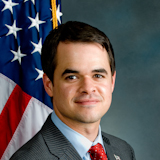S T A T E O F N E W Y O R K
________________________________________________________________________
218
2019-2020 Regular Sessions
I N S E N A T E
(PREFILED)
January 9, 2019
___________
Introduced by Sen. BENJAMIN -- read twice and ordered printed, and when
printed to be committed to the Committee on Health
AN ACT to amend the public health law, the education law and the penal
law, in relation to requiring anaphylactic policies for child care
services
THE PEOPLE OF THE STATE OF NEW YORK, REPRESENTED IN SENATE AND ASSEM-
BLY, DO ENACT AS FOLLOWS:
Section 1. This act shall be known and may be cited as "Elijah's Law".
§ 2. Section 2500-h of the public health law, as added by chapter 579
of the laws of 2007, is amended to read as follows:
§ 2500-h. Anaphylactic policy for [school districts] CHILD CARE
SERVICE PROVIDERS. 1. FOR PURPOSES OF THIS SECTION "CHILD CARE SERVICE"
OR "CHILD CARE SERVICE PROVIDER" SHALL MEAN CARE FOR ANY CHILD UNDER THE
AGE OF EIGHTEEN PROVIDED ON A REGULAR BASIS AWAY FROM THE CHILD'S RESI-
DENCE FOR LESS THAN TWENTY-FOUR HOURS PER DAY BY SOMEONE OTHER THAN THE
PARENT, STEP-PARENT, GUARDIAN, OR RELATIVE WITHIN THE THIRD DEGREE OF
CONSANGUINITY OF THE PARENTS OR STEP-PARENTS OF SUCH CHILD; AND SHALL
INCLUDE, BUT NOT BE LIMITED TO: ALL PUBLIC AND PRIVATE ELEMENTARY AND
SECONDARY SCHOOLS; GROUP FAMILY DAY CARE HOME, FAMILY DAY CARE HOME AND
SCHOOL AGE CHILD CARE AS SUCH TERMS ARE DEFINED IN SECTION THREE HUNDRED
NINETY OF THE SOCIAL SERVICES LAW; A DAY CAMP AS DEFINED IN THE STATE
SANITARY CODE; AN AFTER-SCHOOL PROGRAM OPERATED FOR THE PURPOSE OF RELI-
GIOUS EDUCATION, SPORTS, OR RECREATION; A FACILITY PROVIDING DAY
SERVICES UNDER AN OPERATING CERTIFICATE ISSUED BY THE DEPARTMENT, THE
OFFICE OF MENTAL HEALTH OR OFFICE FOR PEOPLE WITH DEVELOPMENTAL DISABIL-
ITIES; A KINDERGARTEN, PRE-KINDERGARTEN OR NURSERY SCHOOL FOR CHILDREN
THREE YEARS OF AGE OR OLDER; AN AFTER-SCHOOL PROGRAM FOR CHILDREN OPER-
ATED BY A PUBLIC SCHOOL DISTRICT OR BY A PRIVATE SCHOOL OR ACADEMY WHICH
IS PROVIDING ELEMENTARY OR SECONDARY EDUCATION OR BOTH.
EXPLANATION--Matter in ITALICS (underscored) is new; matter in brackets
[ ] is old law to be omitted.
LBD01766-01-9
S. 218 2
2. The commissioner[, in consultation with the commissioner of educa-
tion, shall establish an anaphylactic policy for school districts
setting forth guidelines and procedures to be followed for both] SHALL
ADOPT AN ANAPHYLACTIC POLICY WHICH SHALL CONFORM TO THE VOLUNTARY GUIDE-
LINES FOR MANAGING FOOD ALLERGIES IN SCHOOLS AND EARLY CARE AND EDUCA-
TION PROGRAMS PROMULGATED BY THE UNITED STATES DEPARTMENT OF HEALTH AND
HUMAN SERVICES FOR ALL CHILD CARE SERVICES. SUCH ANAPHYLACTIC POLICY
SHALL BE FOLLOWED FOR BOTH the prevention of anaphylaxis and during a
medical emergency resulting from anaphylaxis. Such ANAPHYLACTIC policy
shall be [developed] IMPLEMENTED after consultation with representatives
of pediatric physicians, [school nurses] and other health care providers
with expertise in treating children with anaphylaxis, parents of chil-
dren with life threatening allergies, [school administrators, teachers,
school food service directors] and appropriate not-for-profit corpo-
rations representing allergic individuals at risk for anaphylaxis.
[2.] 3. The anaphylactic policy established by [subdivision one of]
this section shall include the following:
(a) a procedure and treatment plan, including responsibilities for
school nurses and other appropriate school personnel AND EVERY CHILD
CARE SERVICE PROVIDER, for responding to anaphylaxis;
(b) a training course for appropriate [school] personnel for prevent-
ing and responding to anaphylaxis;
(c) a procedure and appropriate guidelines for the development of an
individualized emergency health care plan for children with a food or
other allergy which could result in anaphylaxis;
(d) a communication plan for intake and dissemination of information
regarding children with a food or other allergy which could result in
anaphylaxis; [and]
(e) strategies for the reduction of the risk of exposure to anaphylac-
tic causative agents, including food and other allergens;
(F) A COMMUNICATION PLAN FOR DISCUSSION WITH ANAPHYLACTIC CHILDREN
ABOUT FOODS THAT ARE SAFE AND UNSAFE FOR THE CHILD, AND ABOUT STRATEGIES
TO AVOID EXPOSURE TO UNSAFE FOOD; AND
(G) A REQUIREMENT THAT EACH CHILD CARE SERVICE PROVIDER SHALL HAVE AN
ONSITE MECHANISM, INCLUDING BUT NOT LIMITED TO AUTO INJECTORS THAT ARE
CURRENT AND NOT EXPIRED, THAT WILL IMMEDIATELY REDUCE THE EFFECTS OF ANY
LIFE-THREATENING ALLERGIES.
[3. On or before June thirtieth, two thousand eight] 4. SIX MONTHS
AFTER THE EFFECTIVE DATE OF THE CHAPTER OF THE LAWS OF TWO THOUSAND
NINETEEN THAT AMENDED THIS SECTION, an anaphylactic policy shall be
jointly forwarded by the commissioner and the commissioner of education
to each [local school board of education, charter school, and board of
cooperative educational services] CHILD CARE SERVICE PROVIDER in the
state. [Each such board and charter school] EVERY CHILD CARE SERVICE
PROVIDER shall [consider and take action in response to] IMPLEMENT such
anaphylactic policy WITHIN NINETY DAYS OF RECEIVING SUCH ANAPHYLACTIC
POLICY FROM SUCH COMMISSIONERS.
5. (A) ANY WILLFUL OR NEGLIGENT VIOLATION OF THIS SECTION BY A CHILD
CARE SERVICE PROVIDER SHALL RESULT IN A CIVIL PENALTY NOT TO EXCEED FIVE
THOUSAND DOLLARS FOR EACH VIOLATION.
(B) IF A CHILD CARE SERVICE PROVIDER FAILS TO IMPLEMENT THE GUIDELINES
AND ANAPHYLACTIC POLICY PURSUANT TO THIS SECTION, SUCH CHILD CARE
SERVICE PROVIDER'S LICENSE OR REGISTRATION SHALL BE REVOKED. A CHILD
CARE SERVICE PROVIDER MAY, BY WRITTEN REQUEST TO THE COMMISSIONER AND IN
THE COMMISSIONER'S DISCRETION, BE GRANTED AN EXTENSION OF TIME TO IMPLE-
MENT THE ANAPHYLACTIC POLICY REQUIRED PURSUANT TO THIS SECTION.
S. 218 3
6. THE COMMISSIONER, IN CONSULTATION WITH THE COMMISSIONER OF EDUCA-
TION AND THE COMMISSIONER OF THE OFFICE OF CHILDREN AND FAMILY SERVICES
SHALL DEVELOP AND IMPLEMENT A PLAN FOR REPORTING, INSPECTING AND MONI-
TORING OF CHILD CARE SERVICES TO ENSURE COMPLIANCE WITH THIS SECTION.
§ 3. Paragraph (f) of subdivision 2 of section 3000-c of the public
health law, as added by chapter 373 of the laws of 2016, is amended to
read as follows:
(f) [Nothing in] THE PROVISIONS OF this section shall NOT require
[any] AN eligible person or entity WHICH IS NOT A CHILD CARE SERVICE AS
DEFINED IN SECTION TWENTY-FIVE HUNDRED-H OF THIS CHAPTER to acquire,
possess, store, make available, or administer an epinephrine auto-injec-
tor.
§ 4. Section 921-a of the education law, as amended by chapter 200 of
the laws of 2017, is amended to read as follows:
§ 921-a. On-site epinephrine auto-injector. 1. School districts,
boards of cooperative educational services, county vocational education
and extension boards, charter schools, and non-public elementary and
secondary schools in this state [may] SHALL provide and maintain on-site
in each instructional school facility epinephrine auto-injectors in
quantities and types deemed by the commissioner, in consultation with
the commissioner of health, to be adequate to ensure ready and appropri-
ate access for use during emergencies to any student or staff having
anaphylactic symptoms whether or not there is a previous history of
severe allergic reaction.
2. School districts, boards of cooperative educational services, coun-
ty vocational education and extension boards, charter schools, and non-
public elementary and secondary schools in this state, any person
employed by any such entity, or employed by a contractor of such an
entity while performing services for the entity may administer epineph-
rine auto-injectors in the event of an emergency pursuant to the
requirements of section three thousand-c of the public health law.
§ 5. Section 260.10 of the penal law is amended by adding a new subdi-
vision 4 to read as follows:
4. BEING A CHILD CARE SERVICE PROVIDER, HE OR SHE FAILS TO COMPLY WITH
THE PROVISIONS OF THE ANAPHYLACTIC POLICIES ADOPTED BY THE COMMISSIONER
OF HEALTH PURSUANT TO SECTION TWENTY-FIVE HUNDRED-H OF THE PUBLIC HEALTH
LAW, INCLUDING THE REQUIRED AVAILABILITY AND USE OF AN EPINEPHRINE AUTO-
INJECTOR, WHICH RESULTS IN HARM TO A CHILD UNDER THE CARE OF SUCH CHILD
CARE SERVICE PROVIDER.
§ 6. This act shall take effect immediately.

